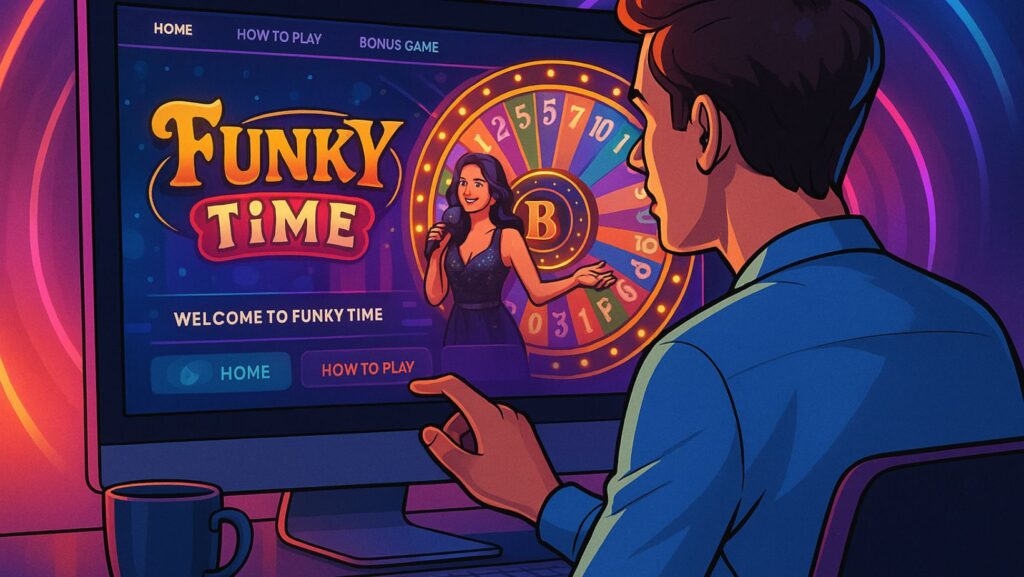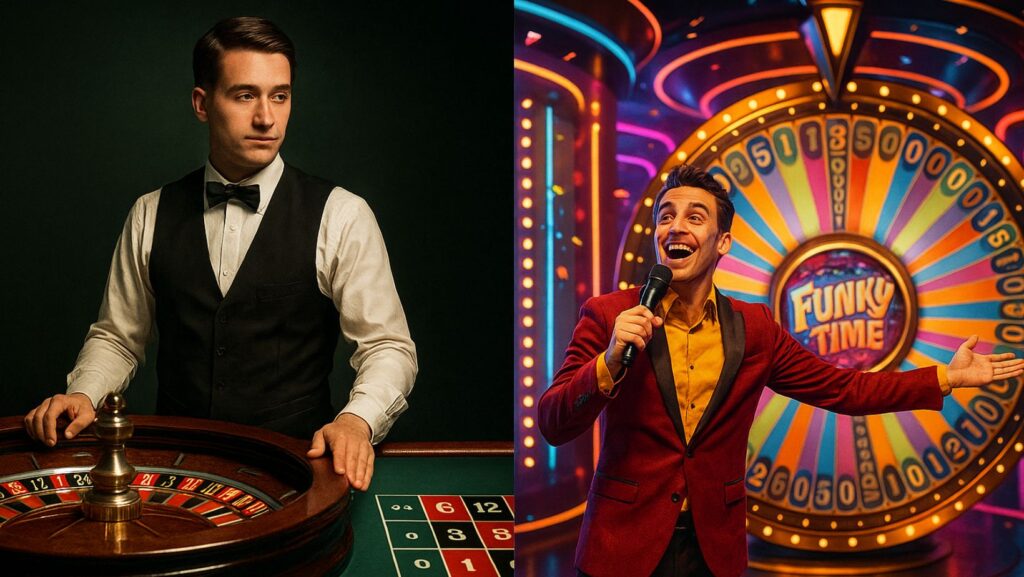Live casino gaming has come a long way from simply streaming a dealer at a table. What once looked like a digital extension of a land-based casino has evolved into entertainment-rich formats designed to keep players engaged not only through wagers but through energy, rhythm, and anticipation. Today, live game shows feel closer to TV studio experiences than traditional betting sessions, and that shift didn’t happen overnight.
From Simple Live Tables to Immersive Studio Productions
When live roulette and blackjack first appeared, the selling point was realism. Seeing a real dealer shuffle cards on a real table was enough to create trust and excitement. But over time, that novelty faded, and players wanted more than just confirmation that the game was live — they wanted atmosphere, expressiveness, and emotional engagement.
This transition unfolded gradually:
- Dealers moved from being neutral facilitators to active hosts who talk, joke, and energize the session.
- The environment shifted from basic green tables to stylized studios with lighting transitions and thematic backdrops.
- Gameplay gained pacing, music cues, and buildup moments designed to trigger emotional peaks.
As attention spans shortened and competition in the iGaming market grew, the logical next step was to turn betting sessions into interactive entertainment shows.
The Rise of Titles Like Crazy Time, Funky Time, and Monopoly Live
Games such as Crazy Time, Funky Time, Dream Catcher, and Monopoly Live changed expectations entirely. These titles didn’t just offer bets; they offered moments — suspense before wheel spins, laughter between host interactions, collective reactions when a rare bonus hit. The social aspect became just as important as the outcome.
Many players now actively look for platforms where they can explore titles upfront and confidently play Funky Time online game without wading through generic casino lobbies. These shows thrive on emotional payoff: group excitement when a multiplier triggers, unpredictable bonus rounds that can suddenly shift momentum, and charismatic hosts who carry the energy like performers on a stage.
To understand why this new wave resonates so strongly, it helps to compare classic live tables with modern show-driven experiences:
| Feature | Classic Live Games | Game Show Titles (e.g., Funky Time) |
| Host Role | Neutral dealer | Engaging entertainer |
| Atmosphere | Formal casino setup | Vibrant studio stage |
| Bonus Rounds | Rare or minimal | Core gameplay driver |
| Emotional Pace | Steady | Fast, unpredictable, reactive |
The transformation showed that players aren’t just chasing payouts — they’re seeking experiences they can talk about afterward.
Case Study: How FunkyTime.Games Shape the Player Journey
Before joining a live show game, many users want to understand its rhythm, how bonus sequences work, and whether the pacing matches their mood. That’s where platforms like FunkyTime.Games come into play. Instead of overwhelming visitors with random casino options, the site allows them to get a feel for Funky Time’s environment first — from tempo and interaction style to overall studio vibe.

This type of introduction builds familiarity without pushing immediate betting. It’s about helping users step into the session feeling prepared rather than confused. Whether someone is exploring the game’s structure or just gauging how entertaining it feels, having a space that frames the experience without overselling it makes the transition into live sessions smoother and more confident.
What’s Fueling the Next Wave of Live Game Shows?
The popularity of wheel-based and show-style games has proven that gambling can be more engaging when wrapped in a theatrical journey. But developers are already working on the next phase — pushing interactivity and personalization further.
Here are some of the directions the genre is likely heading:
- Audience impact on outcomes: Viewers voting on bonus paths or influencing multiplier tiers.
- AR-enhanced visuals: Studios layered with dynamic animated effects that react to gameplay.
- Story-driven progression: Rounds that connect, creating longer narrative arcs.
- Social-lounge formats: Group progression, shared goals, and community milestones during sessions.
- Dynamic difficulty shifts: Game phases adapt based on play patterns, time spent, or round momentum.
This evolution is transforming live game shows into something closer to interactive TV events with gambling mechanics rather than simple betting sessions.
Conclusion
Live game shows have reshaped the online gaming landscape by turning passive wagering into shared entertainment. Players no longer settle for quiet tables and silent outcomes — they want excitement that builds, spins that feel like events, and hosts who keep the room alive. Titles like Funky Time and Crazy Time prove that the future of casino gaming lies not just in probability, but in performance and emotional resonance. Platforms such as FunkyTime.Games support this shift by helping users understand and connect with these experiences before diving in. As innovation continues, the live gaming stage will only become brighter, louder, and more unforgettable — not just a spin, but a moment worth staying for.


